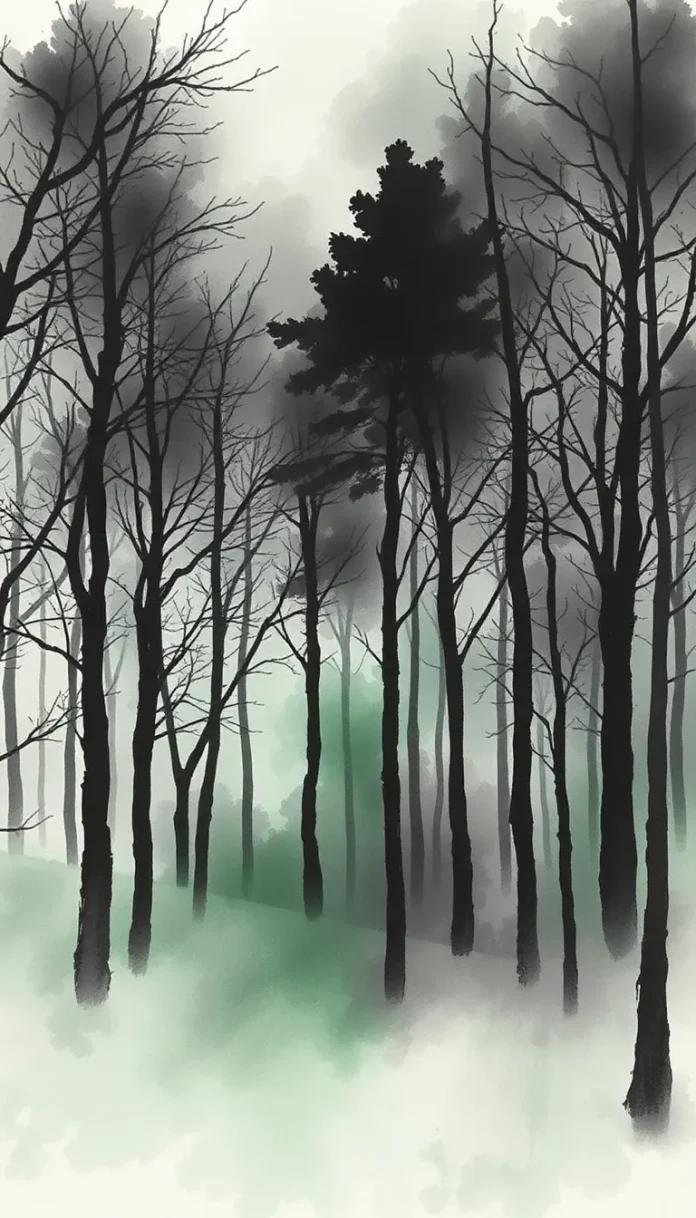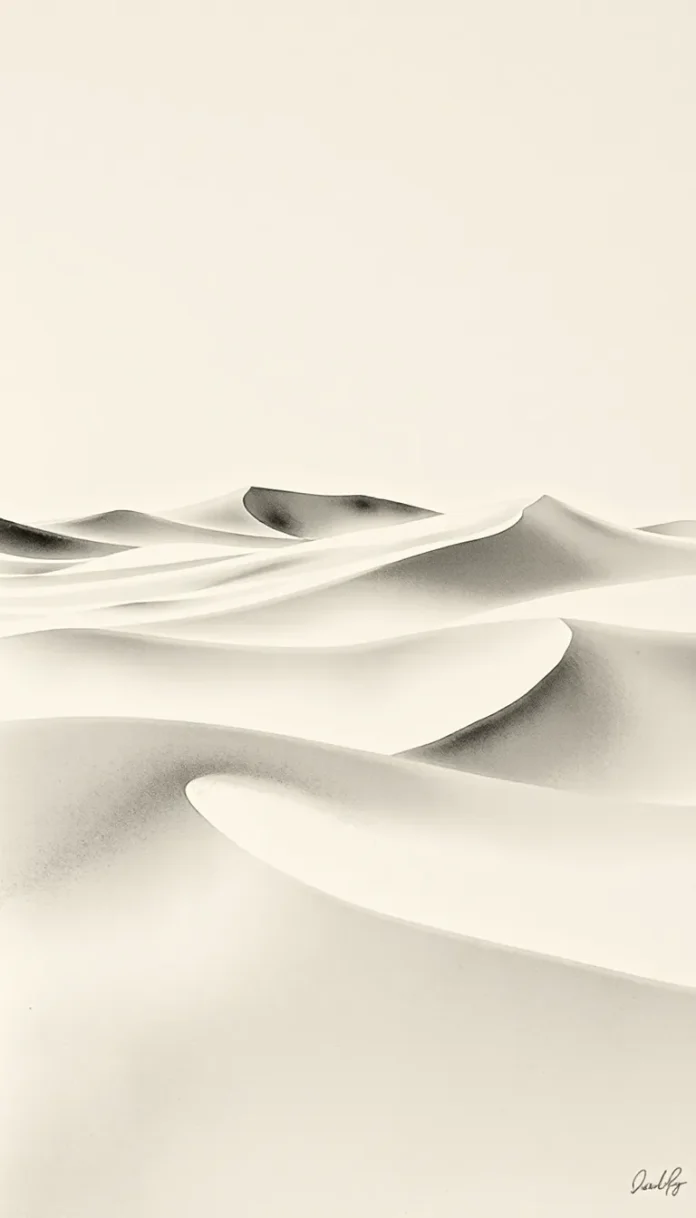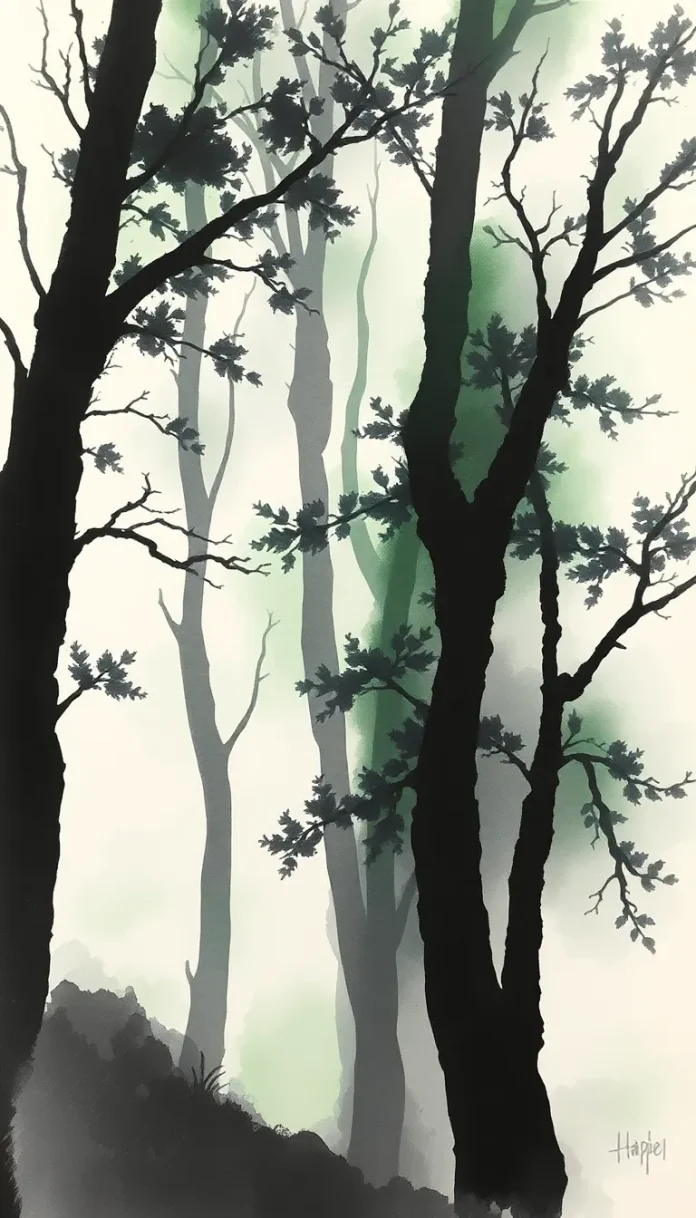The Knight’s Last Vigil
Where shadows clung like lichen to the stones,
A knight, his armor scarred by time’s cruel stitch,
Approached the temple’s gate with muted groans.
No banner flew, no clarion call resounded—
Only the wind’s low dirge through cracks unnamed,
As if the earth itself in grief had hounded
His steps to this threshold, weary and maimed.
The archway loomed, its carvings worn to ghosts:
Kings with hollow eyes and serpents coiled in sleep,
Their stories swallowed by the centuries’ hosts,
Their truths entombed where only silence seeps.
He crossed the threshold, blade unsheathed in caution,
Yet found no foe—no specter, trap, nor flame—
But corridors that breathed with subtle torsion,
As though the walls themselves recalled his name.
Through halls where dust performed its slow ballet,
He wandered, guided by a phantom ache,
Past frescoes frayed to whispers of decay,
Their once-vivid hymns now ashen, flaked, and opaque.
Ahead, a chamber yawned—a gaping maw—
Its heart illumed by one frail, trembling spark
That cast no light but deepened every flaw,
A guttering wick adrift in endless dark.
There, at the center, rose a dais of bone,
And on it lay a tome bound in chain and rue,
Its pages blank as snow, yet not unknown—
A mirror to the seeker’s void, it drew
His gauntlet forth. He knelt, the metal clanking
Like funeral bells, and touched the open leaf.
The parchment stirred, as though a soul were thanking
His trembling hand, and writ itself to grief:
*“What truth exists is carved in transient breath,
A riddle posed by echoes to the deaf.
The seeker’s crown is thorns, his triumph—death;
The temple’s only god is boundless theft.”*
A laugh escaped him, sharp as shattered glass—
What fool had he been, chasing phantoms here?
Yet as he turned to flee that barren mass,
The chamber shuddered, trembling with a fear
Not born of stone. The walls began to weep
A seep of black, thick as the blood of night,
That pooled and pulsed and swelled from depths unseen,
A tide of shadows hungry for his light.
He ran, the corridors now twisting sly,
Their once-firm paths now serpentine, unbound.
The tome’s curse hissed, its prophecy nigh:
*“No truth survives the seeker’s blade unwound.”*
His armor, once a second skin of pride,
Grew leaden, cold—a coffin forged in haste—
As every step betrayed the floor’s false guide,
And every breath was cloyed with bitter waste.
At last, he stumbled into moonlit air,
The temple’s jaws expelled him to the plain,
But in his grasp, the tome still whispered there,
Its pages now a storm of ink and pain.
He read aloud, each syllable a knife:
*“The knight who sought the core of endless why
Shall find his heart outsung by his own strife,
And wisdom’s price is but to choke on sky.”*
His helm removed, he gazed upon the stars,
Those distant, frozen watchers of the void,
And wept to see their light, how it debars
All answers, how the cosmos, self-destroyed,
Offered no solace, no design, no end—
Only the vast indifference of the night.
The tome dissolved to ash within his hand,
And with it fled the remnants of his fight.
Dawn came, a timid thief, to find him still:
A statue of resolve, now cracked and frail,
His eyes two pools that had drunk winter’s chill,
His lips half-parted in a final wail.
The temple, satiated, returned to dust,
No mark left of its labyrinthine spite—
Just one lone sword, consumed by crimson rust,
And truth, that siren song, forever mute.
“`


